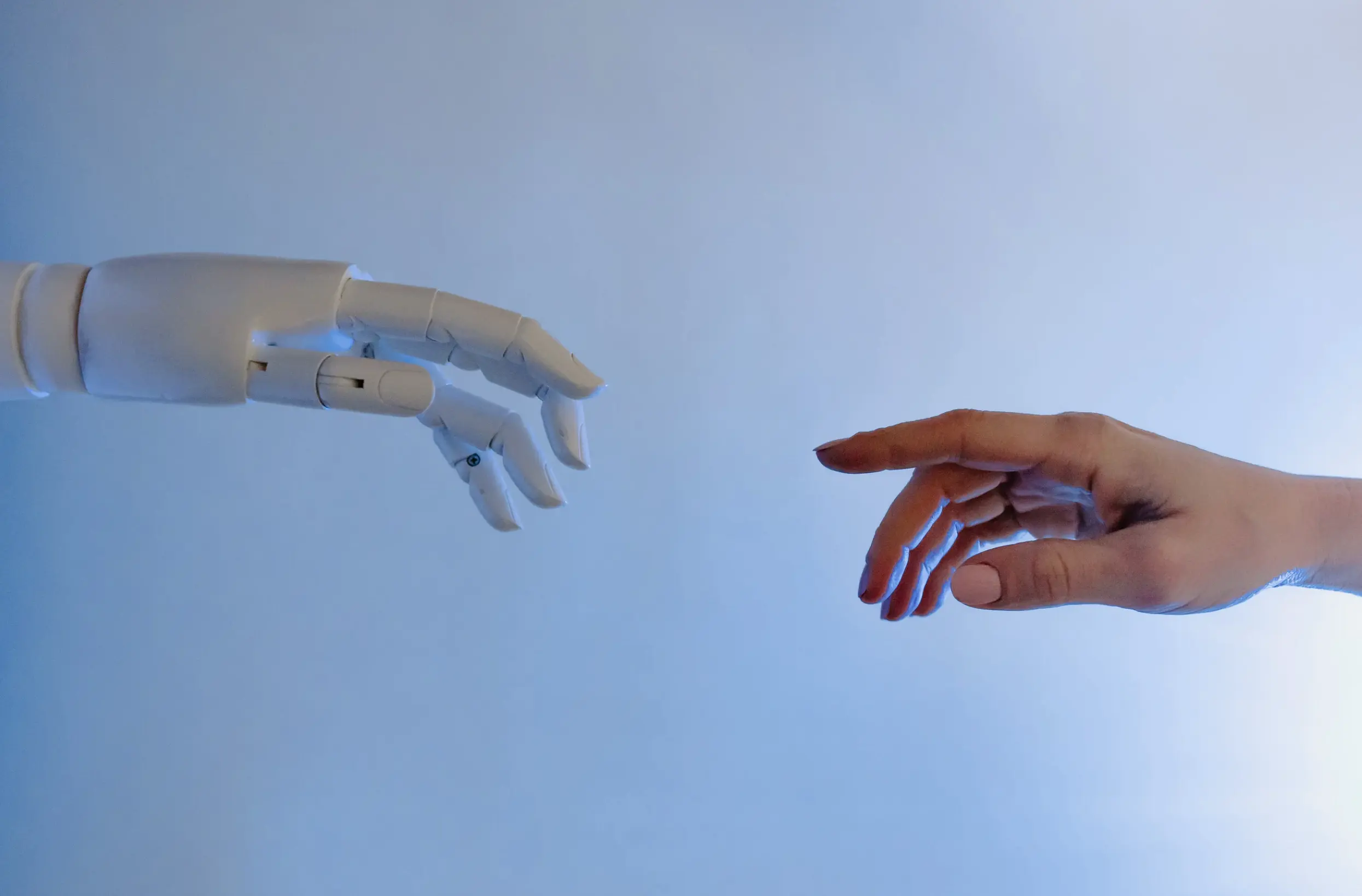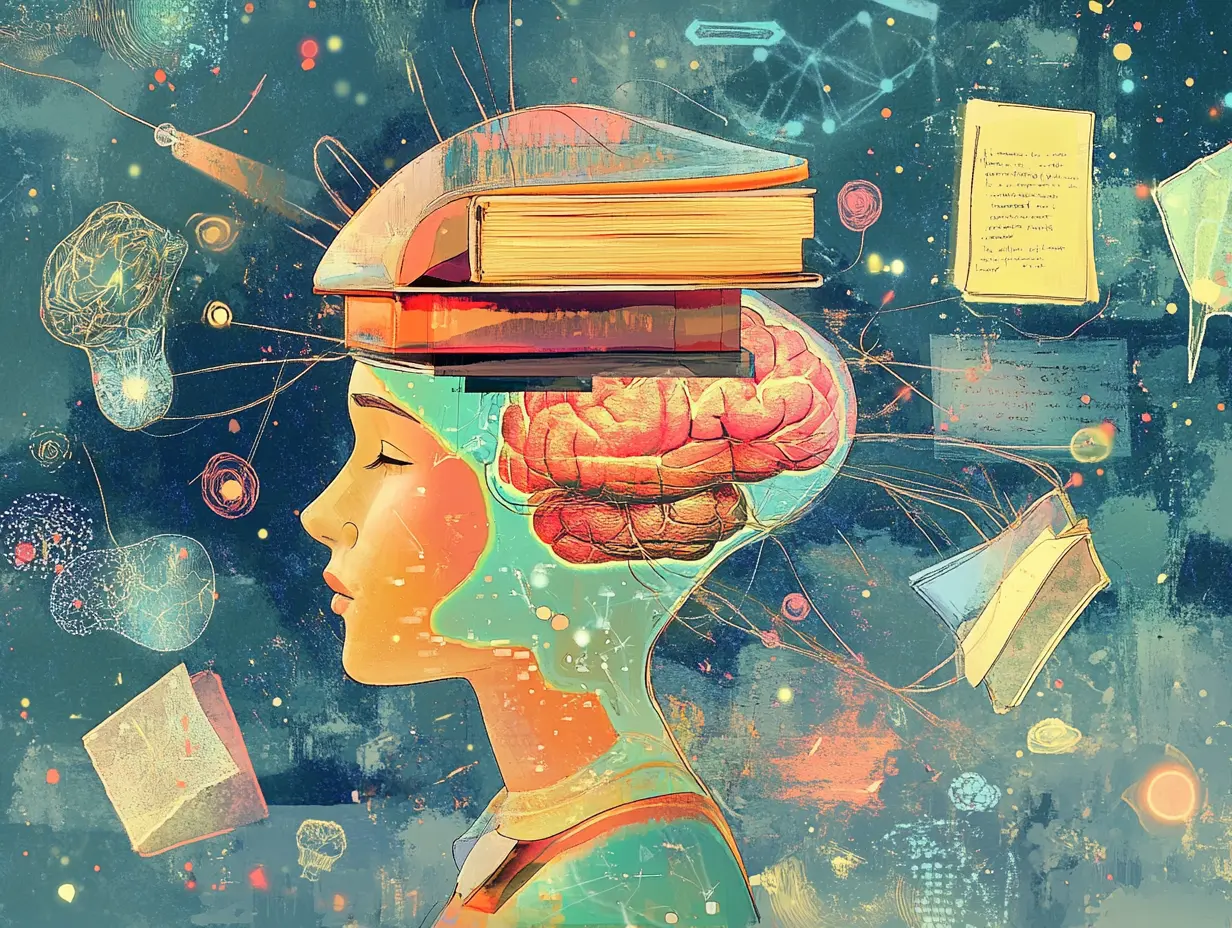
AI in education is changing how we learn and teach. This article explains how AI personalizes learning, supports teachers, and automates administrative tasks, enhancing educational outcomes without replacing human educators.
Key Takeaways
- AI enhances education by providing personalized learning experiences, helping teachers tailor strategies to meet individual student needs.
- Intelligent tutoring systems and AI automation streamline administrative tasks, allowing educators to focus on engaging lessons and fostering student connections.
- The future of education lies in the collaboration between AI and human teachers, blending technology’s efficiency with the irreplaceable empathy and mentorship that only humans can offer.
Understanding AI in Education
Artificial intelligence in education refers to the use of computer systems to enhance learning, streamline processes, and support educators. The integration of AI in education is not just a futuristic concept; it’s happening now and offers multiple benefits. AI facilitates personalized learning experiences, intelligent tutoring systems, and the automation of administrative tasks, which are all designed to improve the overall learning process.
One of the most significant advantages of AI in education is its ability to provide insights that help educators refine their teaching strategies. Analyzing educational data allows AI systems to identify learning gaps and suggest personalized interventions, leading to better student performance. These insights are invaluable for human teachers who can then tailor their approach to meet the unique needs of each student.
As we prepare students for a constantly evolving educational landscape, it’s crucial to understand how AI is transforming teaching and learning. The integration of AI in education is not about replacing human teachers but rather about enhancing their capabilities and providing them with the tools they need to succeed.
Personalized Learning with AI
AI technologies reshape education by offering individualized learning experiences that align with each student’s pace and style. Personalized learning through AI allows students to progress at their own pace and engage with activities aligned with their learning styles, making the learning process more effective and enjoyable. This approach ensures that no student is left behind and that each one receives the attention they need to succeed.
One of the standout features of AI-powered tools is their ability to provide instant feedback, which enhances student motivation and keeps them focused on their goals. Moreover, AI can create immersive and interactive learning experiences through technologies like virtual reality and augmented reality, which significantly boost student engagement and motivation. These immersive experiences make learning more meaningful and enjoyable for students.
AI-powered platforms can automatically adjust the difficulty of tasks to match a student’s abilities, providing real-time assistance and support. When directed by a skilled human teacher, AI tools can offer personalized learning experiences that cater to individual student needs, helping them achieve their full potential through machine learning and adaptive learning platforms.
Intelligent Tutoring Systems
Intelligent tutoring systems provide personalized guidance and support, mimicking one-on-one tutoring for students. These AI-driven platforms continuously learn from student interactions, improving their effectiveness over time and ensuring that each student’s learning experience is tailored to their specific needs. This personalized approach can lead to significant improvements in student performance.
AI systems generate actionable data driven insights from educational data analytics, helping educators in several ways:
- Identify learning gaps in students
- Analyze learning patterns
- Provide timely interventions to address knowledge gaps
- Ensure students receive support precisely when needed, preventing them from falling behind
The benefits of personalized learning provided by intelligent tutoring systems cannot be overstated. These systems adjust to each student’s strengths and weaknesses, offering a customized learning experience that keeps students engaged and motivated on a personal level, highlighting the potential benefits. As a result, students are more likely to succeed academically and develop a love for learning.
Automating Administrative Tasks
AI automates a variety of administrative tasks, allowing educators to focus more on teaching and less on paperwork. By streamlining administrative tasks such as:
- managing admissions
- attendance
- scheduling
- compliance management AI helps to reduce the burden on teachers and improve overall classroom management. This not only saves time but also enhances the efficiency of educational institutions.
AI’s ability to handle repetitive tasks, such as automated grading and grading assignments, further frees up educators to focus on more meaningful aspects of teaching. This automation leads to a more streamlined educational environment, where teachers can dedicate more time to fostering student engagement and addressing individual student needs.
Enhancing Critical Thinking and Problem-Solving Skills

AI systems offer solutions to engage students effectively, monitor engagement levels, and reduce dropout rates. Automating simple tasks with AI enables students to concentrate on more complex cognitive activities, enhancing their critical thinking and problem-solving skills. This shift in focus helps students develop the competencies needed to navigate future challenges.
Incorporating AI into education encourages students to embrace curiosity and spark curiosity, developing self-directed learning habits. AI can serve as a resource for scientific inquiry, prompting students to engage more deeply with data and draw their own conclusions. This approach not only fosters a deeper understanding of the subject matter but also cultivates critical thinking and decision-making skills.
AI can facilitate creativity and learning in education by:
- Serving as a brainstorming partner to help students enhance their innovative thinking.
- Encouraging students to fact-check AI-generated information to maintain their analytical skills.
- Positioning AI as a tool for exploration rather than a shortcut to solutions, fostering active learning and problem-solving skills.
Emotional Support and Human Interaction
The emotional connection provided by human teachers is essential for student motivation and engagement, allowing teachers to play a critical role in fostering a supportive learning environment that AI cannot create. Personal encouragement and emotional support from teachers are irreplaceable elements in education.
Education heavily relies on human interaction for emotional support, which AI cannot replicate. AI’s inability to understand human emotions can hinder students’ social and emotional development. Empathy is crucial in education because AI cannot read body language or understand student motivation like humans can.
Relying solely on AI can lead to a reduction in meaningful learning engagement between students and teachers. AI cannot offer mentorship and guidance that human teachers provide. The human touch is vital for effective teaching and creating a learning environment where students feel valued and supported, as well as the human elements that contribute to this dynamic.
Ethical Considerations in AI Integration
Implementing AI responsibly in education involves understanding the ethical implications and ensuring that AI tools contribute positively to learning. Educational institutions face significant challenges in creating a consistent framework for ethical AI usage due to a lack of clear guidelines. Teachers and educational administrators need to address several ethical considerations related to AI usage.
Robust data privacy policies are crucial for protecting the personal information of students when utilizing AI systems. Educators should ensure transparency and seek consent from students and parents regarding data usage, considering cultural nuances. Bias in AI algorithms can lead to unfair educational outcomes, making it a major concern to scrutinize and refine the data used for training data these systems.
Not all students have equal access to technology, raising significant equity concerns in the digital divide regarding the use of AI tools in education. Transparency in AI decision-making helps build trust among students and educators regarding how grades and recommendations are formulated.
Preparing Students for the Future
Students need to develop critical skills, become self-directed learners, and have a deep conceptual understanding to succeed in the future. Surveys show that a majority of teachers believe AI tools will be vital for student success in higher education and the workforce. This highlights the importance of preparing students for the widespread use of AI technologies, where students learn to navigate these advancements effectively, enhancing the student’s learning experience and achieving positive learning outcomes.
Teachers play a crucial role in promoting trust, honesty, integrity, and serve as role models in helping students navigate the ethical landscape of AI. Educators believe that generative AI will become a ubiquitous tool in students’ future, making it essential to prepare them accordingly. This preparation involves teaching students how to use AI responsibly and ethically.
AI tools can significantly enhance student performance by providing personalized learning experiences and allowing students to learn at their own pace. By integrating an ai tool into the classroom, educators can better prepare students for the demands of the future workforce.
Professional Development for Educators
AI promotes continuous professional development for educators by recommending tailored resources based on their specific teaching goals. Effective professional development extends beyond training, requiring engaging and personalized experiences to integrate AI into classrooms. Self-paced online courses from organizations like ISTE and Google AI Education offer educators valuable educational content for learning about AI.
Collaboration among educators is essential, allowing them to share insights and strategies related to AI integration in their teaching practices. Ongoing support and guided exploration are crucial for educators to build knowledge about AI and its applications in education. Educators also require adequate training to recognize and mitigate ethical issues when integrating AI into their teaching practices.
AI-driven tutoring systems can help educators by providing analytics that inform instructional strategies through a data driven approach. Teachers must adapt their roles to focus on guiding students in effectively utilizing ai tutors as a learning tool.
The Balanced Approach: AI and Human Teachers Working Together
Collaboration between AI and teachers can significantly enhance the educational experience by allowing educators to focus more on engaging lessons and mentorship. AI cannot replace the empathy, creativity, and mentorship of human teachers. Teachers foster human connections, real-time adaptability, promote critical thinking, and exhibit emotional intelligence, which are crucial for effective learning.
The future of education relies on a hybrid model where AI and human educators work together. This blended approach combines the strengths of AI with the irreplaceable qualities of human teachers. Investments in AI infrastructure and teacher training are crucial for the effective integration of AI in educational settings.
Teachers are innovators, problem-solvers, and curators who spark creativity and curiosity in students, enhancing the overall learning experience. The global market for education ai is projected to rise dramatically, indicating a growing reliance on AI tools within educational contexts.
Summary
In summary, the integration of AI in education offers numerous benefits, from personalized learning and intelligent tutoring systems to automating administrative tasks and enhancing critical thinking skills. However, the irreplaceable role of human teachers in providing emotional support and fostering a supportive learning environment cannot be overlooked.
A balanced approach that combines the strengths of AI and human educators is essential for creating a more effective and enriching learning experience. As we move forward, it’s crucial to invest in AI infrastructure and teacher training to ensure that both AI and human teachers can work together harmoniously to prepare students for the future.
FAQs
AI can greatly enhance educational experiences by providing personalized learning and automating routine tasks, but it cannot replace human teachers. The emotional connection, mentorship, and real-time adaptability that human educators bring are vital for student growth, motivation, and social development. Human teachers foster trust, empathy, and creativity—qualities that AI tools, no matter how advanced, cannot replicate.
AI personalizes learning by analyzing each student's strengths, weaknesses, learning styles, and pace. It tailors educational content and activities to fit these individual needs, providing customized feedback and adjusting difficulty levels in real time. This adaptive approach helps students engage more deeply, progress at their own pace, and receive support exactly when they need it, ultimately leading to improved understanding and academic success.
When integrating AI into education, it is essential to address ethical concerns such as data privacy, transparency, and eliminating bias. Protecting students' personal information requires robust security measures and clear communication with students and parents about data usage. Additionally, AI algorithms must be carefully designed and monitored to prevent unfair or discriminatory outcomes. Promoting fairness and inclusivity ensures that AI benefits all students equitably.
AI supports teachers' professional development by providing personalized recommendations for resources, training, and instructional strategies based on their individual goals and classroom needs. AI-driven platforms can offer self-paced learning opportunities, facilitate collaboration among educators, and supply data-driven insights to help teachers refine their practices. This continuous, tailored support empowers teachers to integrate new technologies effectively and enhance their teaching skills.
The future of AI in education lies in a collaborative, hybrid model where AI-powered tools complement the expertise of human educators. AI will continue to enhance personalized learning, automate administrative tasks, and provide data-driven insights, allowing teachers to focus more on mentorship, creativity, and fostering critical thinking. This balanced approach promises a more engaging, effective, and inclusive educational experience for all students.
AI positively impacts student engagement and motivation by creating interactive and immersive learning experiences tailored to individual interests and needs. Through gamified platforms, instant feedback, and adaptive challenges, AI keeps students motivated and actively involved in their learning journey. By addressing diverse learning styles and providing real-time support, AI helps students maintain focus and develop a lifelong passion for learning.










































































